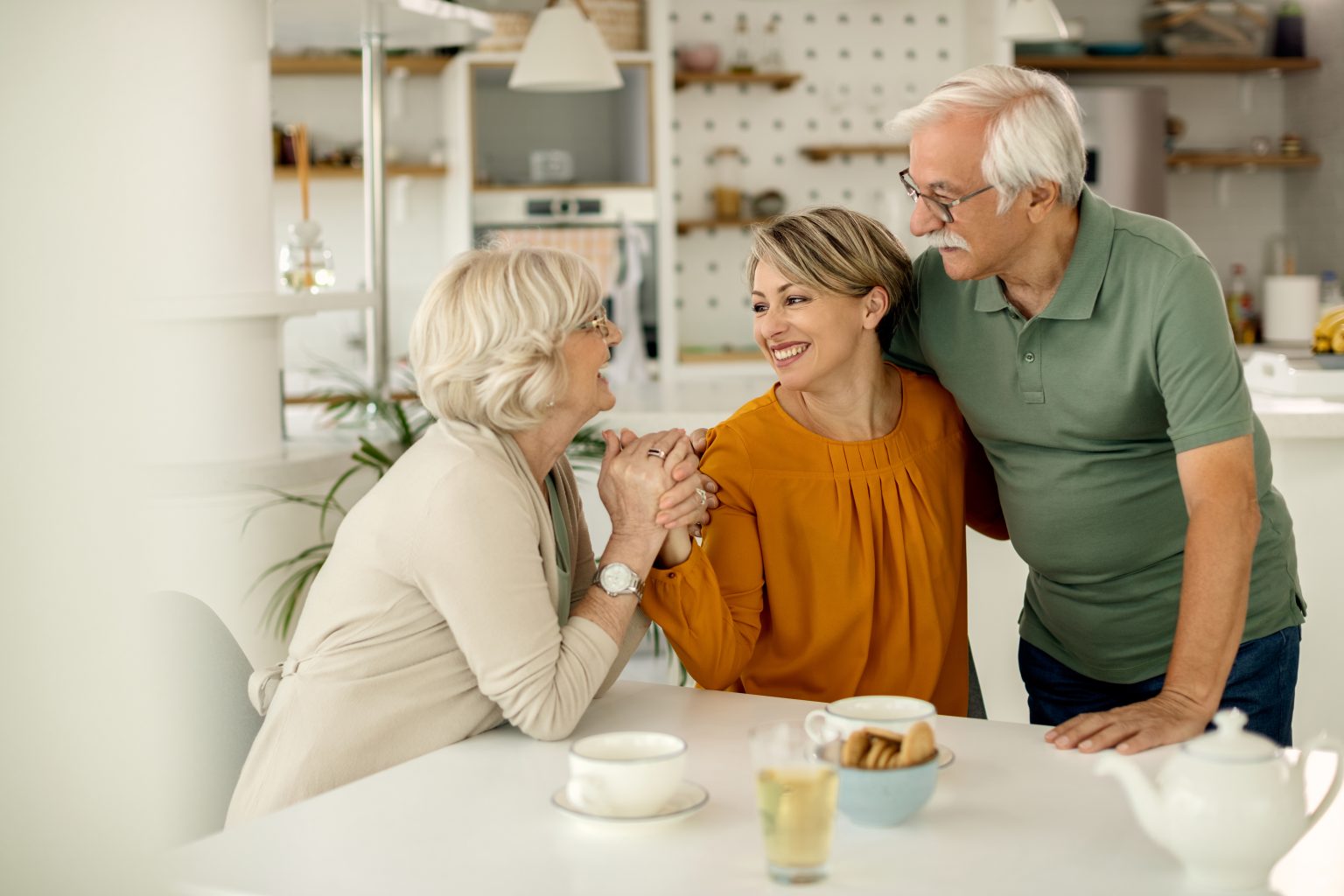

The holiday season is a time of joy, a time to reunite with family, and a time to create heartwarming memories. But, for those with elderly loved ones in home health care, it can also be a time of concern, reflection, and careful observation. With the festive lights and cheerful carols, it becomes an excellent opportunity to assess the living conditions, overall happiness, health, and well-being of your elderly relatives. Let’s dive into some essential aspects to look for when visiting your cherished loved ones this holiday season.
Throughout the year, regular visits to your elderly family members in home health care are crucial—they provide companionship, a sense of belonging, and a break from the daily routine. But, the holidays are a special occasion, a period imbued with warmth and affection that can significantly uplift the spirits of our elderly loved ones. For them, holidays might bring back memories of past celebrations, family gatherings, and joyous experiences.
When you visit your elderly loved ones this holiday season, there are a few key factors you should pay attention to. First, observe their living conditions. Is their living space clean, safe, and comfortable? Are they able to navigate their surroundings easily? These details can provide insights into their daily life and the quality of care they receive.
Next, consider their overall level of happiness and emotional well-being. Are they engaged and stimulated, or do they seem lonely and isolated? The holiday season should be a time of joy and connection, and any signs of depression or unhappiness should be addressed.
Finally, keep an eye on their health. Have they had any significant changes in weight, mobility, or mental clarity? If you notice any red flags, it might be time to discuss their care plan with their healthcare provider. Remember, the goal is to ensure that our elderly loved ones are living their golden years in comfort and dignity.
Look for signs of their happiness. Do they seem excited to see you? Are they willing to engage in conversations and activities? Apathy or disinterest could be a sign of emotional distress.
Assess their ability to complete daily tasks. Can they dress, feed, and bathe themselves? If they appear to struggle with these tasks, it may indicate a decline in physical or mental health.
Observe their interactions with the care staff. Are they comfortable around them? Do they communicate freely? The quality of their relationship with caregivers can greatly affect their overall well-being.
Finally, monitor their health. Notice any changes in their physical appearance, such as significant weight loss or gain, or changes in their mobility. Observe their mental health as well, looking out for signs of confusion, forgetfulness, or mood swings. These could be signs of health problems that need medical attention.
Family involvement is invaluable in the wellbeing of elderly loved ones in home health care. Regular visits by family members, especially during holidays, not only provide emotional support but also an extra layer of vigilance in assessing the quality of care. Families can be instrumental in noticing subtle alterations in the physical or emotional health of their elderly relatives, which might go unnoticed by care staff.
Moreover, family members bring a sense of familiarity and continuity for elderly individuals. Shared memories, familial bonds, and the simple act of being in the company of loved ones can significantly enhance the emotional wellbeing of elderly relatives.
During holidays, families can engage their elderly loved ones in traditional activities, reminisce about past celebrations, or even adapt new traditions to accommodate their elderly loved one’s abilities. This involvement can help to keep your elderly family members feeling connected, valued, and emotionally fulfilled.
Finally, family’s advocacy role is vital. They can liaise with the healthcare providers to address any concerns, ensure appropriate care measures, and make relevant decisions in the best interest of their elderly relatives. By staying involved, families can contribute significantly to the quality of life and happiness of their elderly loved ones during the holiday season and beyond.
It’s important to remember that the elderly in home health care often have limited ability to travel due to health conditions or physical constraints. This immobility can make the holiday season particularly tough for them, as they may feel left out of family gatherings and traditional celebrations. As a result, our visitation becomes even more critical during these times. When we come to them, we bring the holiday cheer, the love, and the sense of family right to their doorstep. We become their connection to the outside world, their link to family traditions, and a reminder that they are treasured and remembered. Even if they can’t travel or participate in activities like they used to, our presence can help them feel included and valued. So, let’s make every effort to be there for our elderly loved ones in home health care this holiday season, ensuring they are part of the family festivities, in spirit, if not in person.
Small gestures of love and care can have a profound impact on your elderly loved ones’ emotional well-being. Consider bringing them a gift that is meaningful and thoughtful. For example, family photographs, favorite books, or items related to their hobbies can express your love and show that you know and appreciate their interests. You could also involve them in holiday preparations. This could be as simple as asking for their advice on a holiday recipe or sharing the holiday decoration plans with them. If they are able to participate, you could decorate their living space together – this can be a fun and engaging activity.
Moreover, spending quality time with them is invaluable. Engage them in conversations, listen to their stories, and show genuine interest in their experiences. You can also plan to watch their favorite movies or play games they enjoy.
Lastly, don’t forget the power of physical affection. A warm hug, holding hands, or a gentle touch on the arm can provide comfort and convey love, making them feel valued and cared for. However, always make sure they are comfortable with the level of physical contact. Remember, your presence, attention, and affection are the most precious gifts you can give to your elderly loved ones during the holiday season.
In conclusion, the holidays are a significant time for families to reaffirm their bonds, recreate cherished traditions and create new memories. This holds true for our elderly loved ones who, despite being in home health care, should not be any less a part of these celebrations. It is vital to visit them, bringing the joy and warmth of the season right to their doorstep. Their living conditions, happiness, health, and wellbeing are of paramount importance, and our visits provide an invaluable opportunity to assess these aspects and address any concerns immediately. Engaging them in holiday activities, listening to their stories, and showing them love and affection are simple acts that can tremendously boost their emotional wellbeing. While the holidays may bring about changes in the way we celebrate, it does not change the love we have for our elderly relatives. By being there for them, we reassure them of their significant place in our hearts and in our family. Let’s make the most of this holiday season with our elderly loved ones, reminding them, and ourselves, of the ties that bind us together.
Provide your information below to contact us about creating comfort and care for you.